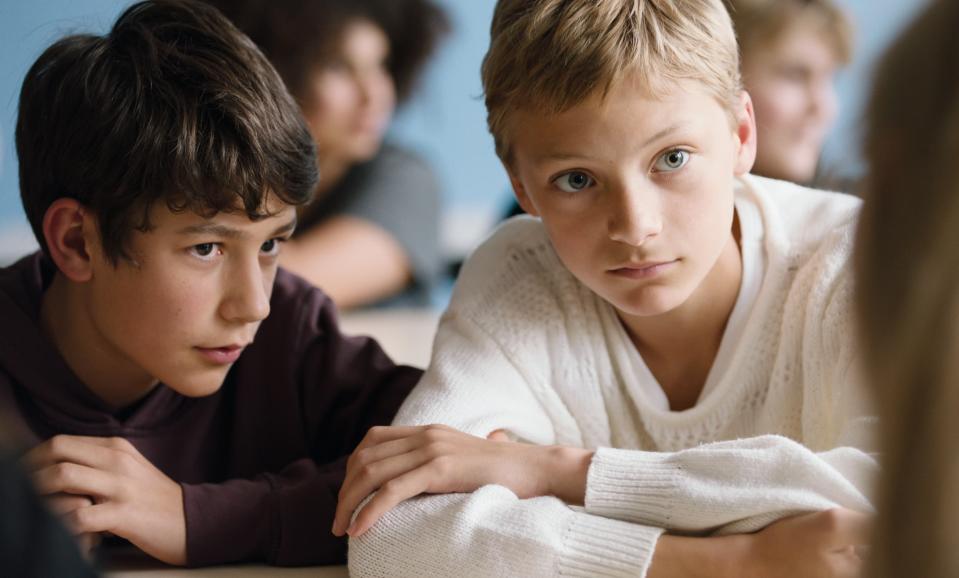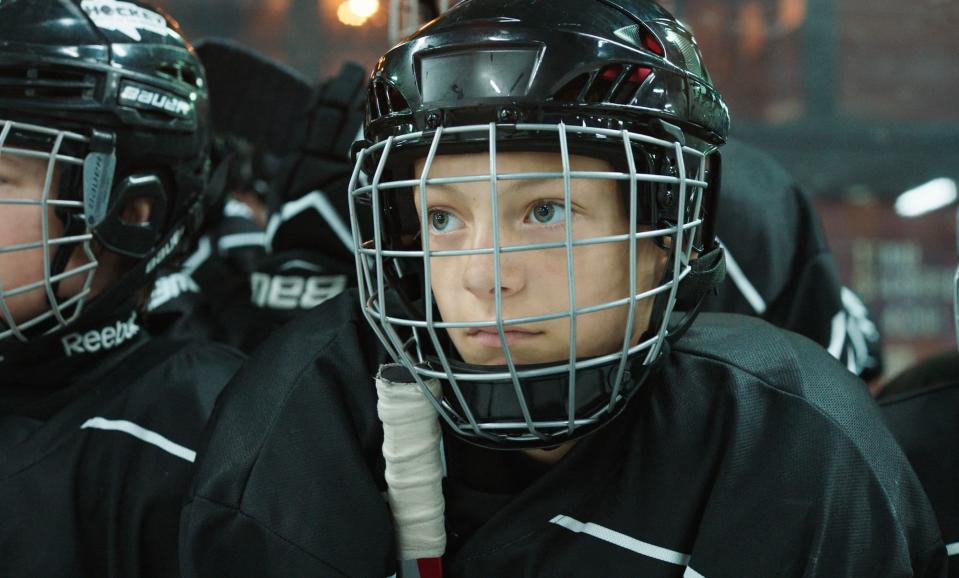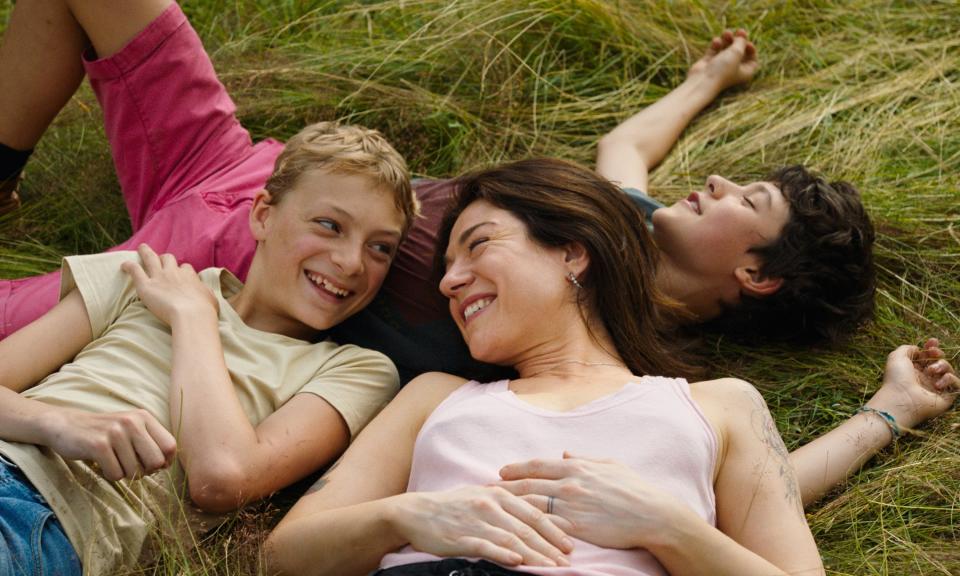Boys and men are lonelier than ever. What can we do about it?
- Oops!Something went wrong.Please try again later.
Are men OK? In all likelihood, they'll never tell you.
Only 21% of men say they received emotional support from a friend within the past week, compared to 41% of women, according to a 2021 survey by the Survey Center on American Life. Similarly, just 25% of men say they've said "I love you" to a friend recently, as opposed to 49% of women.
It's part of an "epidemic of loneliness" that director Lukas Dhont says he wanted to explore in his new drama "Close" (now in theaters nationwide), which is Oscar-nominated for best foreign language film and follows two inseparable teen boys.
"We live in this society that tells young men that there are things we validate more than tenderness and vulnerability," Dhont says. "We teach young men to stop caring for authentic connections and (be) more distant with emotions. It's an incredibly brutal thing."

What is 'Close' about?
"Close" begins with Léo (Eden Dambrine) and Rémi (Gustav De Waele) during summer vacation: running, biking and napping together in the idyllic Belgian countryside. They think nothing of their close connection – sharing beds at sleepovers or resting their heads on each other's shoulders – until they return to middle school, where they are teased and called homophobic slurs by their classmates. Self-conscious, Léo starts avoiding Rémi and joins a hockey team. Rémi, meanwhile, becomes deeply depressed.
Dhont was inspired to make the movie after reading psychologist Niobe Way's 2013 nonfiction book "Deep Secrets: Boys' Friendship and the Crisis of Connection."
"When Niobe (interviewed) all these 13-year-old boys, she realized how lovingly they talked about one another," Dhont says. "I really connected to that. I was also a young boy who felt the power of friendship but then started to fear intimacy as I went through puberty. It was something I had always thought as very linked to me being queer. I realized after (Way's) research that it was not about me being queer, but about me being a man."

How we think boys should behave
Society's general discomfort with close male friendship is rooted in antiquated ideas of gender and masculinity.
"From an early age, women are socialized to be more nurturing and relationship-oriented than men, who are often taught to perceive intimacy as effeminate or weak," says Daniel Cox, director of the Survey Center on American Life. "There's all sorts of societal norms that lead men and women in very different directions when it comes friendship, what function it serves, and what to expect from a friend."
Part of the problem is that young men are encouraged to build "shoulder-to-shoulder friendships" in team sports or group activities, rather than one-on-one relationships.
"Girls and women tend to feel more comfortable in face-to-face interactions," says Dr. Geoffrey Greif, a professor at the University of Maryland School of Social Work. "Some parents might say if they're watching their (boys) play a lot of sports and competing with another guy, that may be more typical. Whereas if they're seeing them have long, private discussions, that would tend to go against gender expectations."
Homophobia creates 'deep stigma' around male friendship
Although the parents in "Close" don't blink at Léo and Rémi's friendship, other students mock them for hugging and sitting together.
"We are conditioned to look at that closeness as something sexual," Dhont says. "We're so unused to seeing that intimacy in a platonic way that we immediately sexualize it."
Nick Fager, a mental health counselor and co-founder of Expansive Therapy, attributes such fears of male intimacy to pervasive, often unconscious homophobia.
"Loving friendship between boys is usually allowed up until a certain age in our culture, but homophobia takes hold and creates a deep stigma around boys who love each other," Fager says. "Boys then have to make a choice between staying in the tribe and surviving, or keeping their hearts open to their friends and being cast out."

Young men need to see vulnerability is OK
According to the Survey Center on American Life, the number of people who say they have no close friends has quadrupled since 1990. Young men, in particular, are 12% more likely than women to rely on their parents for personal support, instead of reaching out to a friend.
But close friendships are paramount to our mental and physical health: A study published by Psychological Science journal in 2018 found that boys who spent more time with their friends as children had lower obesity and blood pressure as adults.
"Research says people with good social networks live longer, happier, healthier lives," Greif says. "If you feel you can't ask for support from a friend, you're going to experience greater social isolation."
As a father himself, Cox says he tries to model meaningful friendships to his two sons, showing them that "it doesn't have to all be superficial: You can talk about deep and important things, and not worry about being made fun of."
Hollywood "bromantic" comedies also tend to make light of male friendship, rather than give it the weight it deserves. But films like "Close" can help show young men – queer and straight – positive examples of male intimacy.
"They need to have role models and actually see men being vulnerable with each other," Fager says. "If there are no examples around them of male love and vulnerability, and they are just told that intimate friendship with men is healthy and normal, the message won’t stick and the wound will get perpetuated."
This article originally appeared on USA TODAY: 'Close' movie director talks male friendship, 'epidemic of loneliness'

